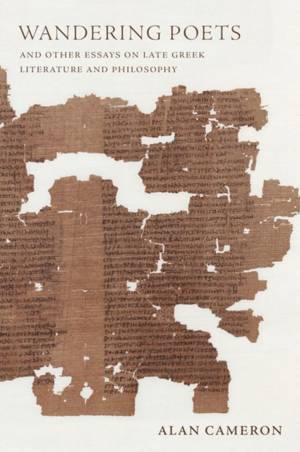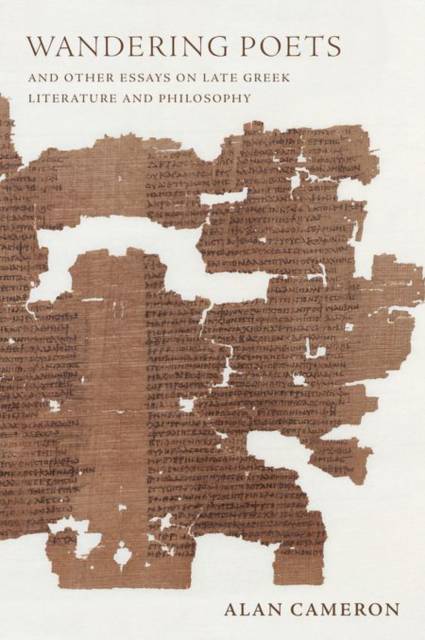
Bedankt voor het vertrouwen het afgelopen jaar! Om jou te bedanken bieden we GRATIS verzending (in België) aan op alles gedurende de hele maand januari.
- Afhalen na 1 uur in een winkel met voorraad
- Gratis thuislevering in België vanaf € 30
- Ruim aanbod met 7 miljoen producten
Bedankt voor het vertrouwen het afgelopen jaar! Om jou te bedanken bieden we GRATIS verzending (in België) aan op alles gedurende de hele maand januari.
- Afhalen na 1 uur in een winkel met voorraad
- Gratis thuislevering in België vanaf € 30
- Ruim aanbod met 7 miljoen producten
Zoeken
Wandering Poets and Other Essays on Late Greek Literature and Philosophy
Alan Cameron
Hardcover | Engels
€ 217,95
+ 435 punten
Omschrijving
This book presents a substantially revised version of some of the most important and innovative articles published by Alan Cameron in the field of late antique Greek poetry and philosophy. Much new material has been added to the account of the "Wandering Poets" from early Byzantine Egypt, and earlier judgment on their paganism is nuanced. The story of Cyrus of Panopolis and the empress Eudocia takes into account important recent work on the poetry of Eudocia. Several chapters discuss the date and identity of the influential poet Nonnus. The longest chapter reviews the celebrated story of the so-called closing of the Academy of Athens and the trip of its seven remaining philosophers to the court of the Persian king Chosroes, rejecting the fashionable current idea that they set up a new school at Harran on the Persian border. An entirely new chapter discusses a recently published papyrus containing poems of the Alexandrian epigrammatist Palladas, rejecting the editor's claim that Palladas wrote almost a century earlier than hitherto believed. A concluding chapter, never before published, reinvestigates the evidence for paganism in sixth-century Byzantium. Boldly and persuasively argued, and drawing on a profound knowledge of the period, the volume as a whole deepens our knowledge of the rich intellectual traditions of the late antique Hellenic world.
Specificaties
Betrokkenen
- Auteur(s):
- Uitgeverij:
Inhoud
- Aantal bladzijden:
- 376
- Taal:
- Engels
Eigenschappen
- Productcode (EAN):
- 9780190268947
- Verschijningsdatum:
- 2/11/2015
- Uitvoering:
- Hardcover
- Formaat:
- Genaaid
- Afmetingen:
- 155 mm x 236 mm
- Gewicht:
- 612 g

Alleen bij Standaard Boekhandel
+ 435 punten op je klantenkaart van Standaard Boekhandel
Beoordelingen
We publiceren alleen reviews die voldoen aan de voorwaarden voor reviews. Bekijk onze voorwaarden voor reviews.









